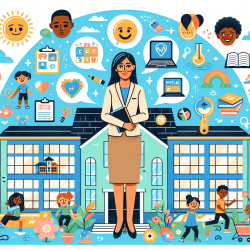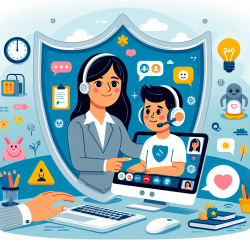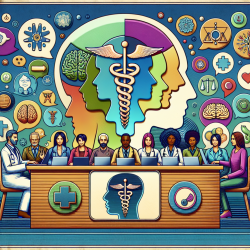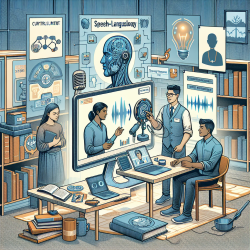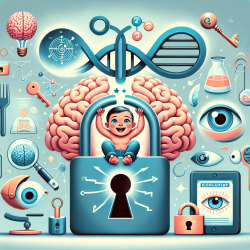Empowering Change: Bridging Cultures in Early Childhood Development
As practitioners in the field of speech-language pathology and early childhood development, it is crucial to consider the cultural contexts in which we operate. The research article "Africa is not a museum: the ethics of encouraging new parenting practices in rural communities in low-income and middle-income countries" provides valuable insights into the ethical implementation of early childhood development (ECD) programs in diverse cultural settings.
Understanding the Ethical Landscape
The article highlights the ethical concerns surrounding the imposition of high-income country (HIC) parenting practices on low-income and middle-income countries (LMICs). It argues that such programs may overlook local cultures and community goals, potentially causing more harm than good. As practitioners, it is essential to adopt a public health framework that respects the principles of beneficence, autonomy, and justice.
Beneficence: Promoting Good While Minimizing Harm
The principle of beneficence emphasizes our responsibility to promote good while minimizing harm. In the context of ECD programs, this means designing interventions that align with the community's values and goals. For example, Tostan's Reinforcement of Parental Practices (RPP) program in Senegal collaborates with communities to integrate traditional practices with evidence-based strategies, ensuring that the interventions are culturally relevant and beneficial.
Respect for Autonomy: Empowering Communities
Respecting autonomy involves empowering communities to make informed decisions about adopting new practices. The RPP program encourages community members to evaluate their existing practices in light of scientific evidence and their aspirations for their children. This approach fosters a sense of ownership and ensures that changes are not externally imposed but are embraced by the community.
Justice: Ensuring Fairness and Equity
The principle of justice urges us to treat all individuals fairly and equitably. In the realm of ECD, this means addressing the disparities in child health and development between different socioeconomic groups. By implementing culturally sensitive and evidence-based programs, we can help bridge the gap and provide all children with the opportunity to reach their developmental potential.
Recommendations for Practitioners
- Collaborate with local communities to co-develop programs that integrate traditional practices with evidence-based strategies.
- Ensure that interventions are aligned with the community's values and aspirations for their children.
- Utilize culturally relevant measures to evaluate program outcomes and adapt interventions as needed.
- Adopt ethical guidelines that consider beneficence, autonomy, and justice in program design and implementation.
By embracing these recommendations, practitioners can enhance their skills and contribute to the positive development of children in diverse cultural settings. To read the original research paper, please follow this link: Africa is not a museum: the ethics of encouraging new parenting practices in rural communities in low-income and middle-income countries.



